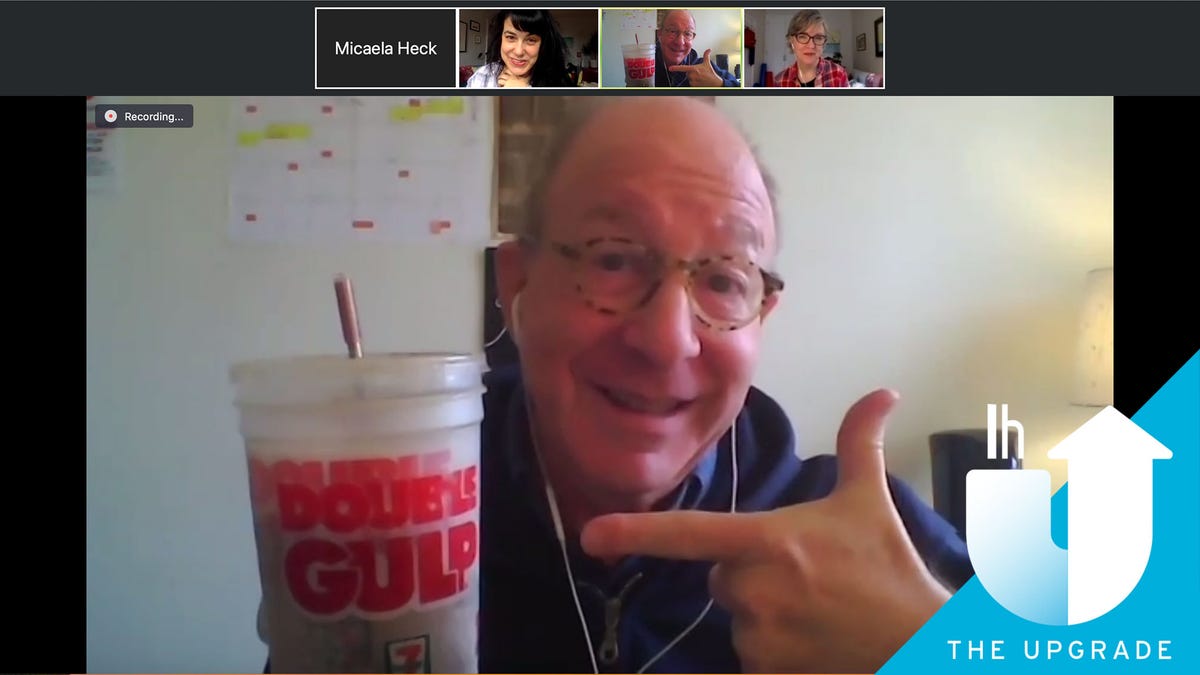
Does physical distancing have you feeling the blahs? We’re reviving our creative instincts this week with help from Jerry Saltz, New York Magazine’s senior art critic and author of the New York Times bestseller How to Be An Artist. Hear Jerry talk about his secrets to finding inspiration in these isolating times, as well as how he imagines the art world will emerge from the global pandemic. Does he think now is a hard time to feel motivated? Yes. Does he think that means you should stop creating? Absolutely not, ya’ big babies!
Then, hear Lifehacker’s health editor Beth Skwarecki speak with epidemiologist and infection preventionist Dr. Saskia Popescu about the right and wrong ways to wear a mask and what you really should be worrying about at the grocery store.
Listen to The Upgrade above or find us in all the usual places podcasts are served, including Apple Podcasts, Google Play, Spotify, iHeartRadio, Stitcher and NPR One.
Highlights from this week’s episode
From the Jerry Saltz Interview
On the benefits of being forced to adapt:
Darwin said it wasn’t the adaptation of the strongest or the fittest. He spent his entire second part of his life trying to clear that up. He said, what I meant by that, that it’s survival of the most able to adapt. And right now, we’re all being forced to adapt. Melissa, Alice, you are daily, hourly, minute by minute, coming to terms with the loneliness, the thing you made, what you didn’t make. Procrastination is much more visible now because there are fewer ways to do it. And all of these things you’re drawing on them. The last 50,000 years of your ancestors had to have been creative for three idiots like us to end up talking and yelling at their computers like this.
On the importance of continuing to create, even when it’s hard:
I would say if you don’t want to, don’t. But inside your bones already do what your bones do. They wouldn’t have made it this far into the future of your great ancestors in Africa. So I would say grow up, ya big baby. Put your butt in the chair. Keep the damn thing there. Don’t tell the refrigerator your first name ever, because then it’ll call you all day. And then work for 22 fuckin’ minutes and make something really bad. You know that dance you were going to do, just do it. Turn around six times, record it on your phone, post it on your Instagram...What you do now in these I’d say 18 months that you’re looking at...You will take with you for the rest of your days. You are modeling something crucial for yourself and for your children, for your friends. For every single thing about you. You will remember this like the first kiss, last goodbye. This is not unimportant, this period.
From the Dr. Saskia Popescu Interview
On the health and safety of grocery stores:
[R]ealistically, you know, COVID-19, SARS-CoV-2, the virus that causes it is not something that’s really showing any kind of transmission in terms of grocery packaging and things. So when I hear people getting worried about groceries, my concern is more, how are you behaving at the grocery store? Are you wearing one pair of gloves, touching everything and then touching your phone? Don’t do that. Clean your hands. I’m less worried about the grocery bags and packaging and the produce than I am about somebody going to the grocery store and using really bad infection control measures. So if you are getting groceries delivered or if you’re worried about when you bring those groceries in your house, I think the biggest piece is washing your hands.
On what’s most important to remember when trying to keep yourself safe:
[A]s you’re reading all of this stuff online and you’re inundated and you’re overwhelmed with information and it’s making you second guess everything you do, just take a moment and really think about what you can control, which is cleaning your hands, keeping surfaces clean, staying home when you’re sick, you know that social distancing, and go back to the basics is what I always say. The CDC Web site is really helpful in answering a lot of these questions and giving you realistic things about how to protect yourself. So don’t get too overwhelmed. Don’t go down too many rabbit holes and know that you have every skill set already to protect yourself. It’s just about being really vigilant with it.
To hear more about how to keep your creative juices flowing and the most effective ways to keep yourself and others safe, we recommend listening to the full episode!
Have any feedback or ideas for future episodes? Want to be featured on the show? Leave us a voicemail at 347-687-8109 or send a voice memo to upgrade@lifehacker.com.
Episode Transcript
from Lifehacker https://lifehacker.com/how-to-be-creative-right-now-with-jerry-saltz-1843119435
0 comments:
Post a Comment